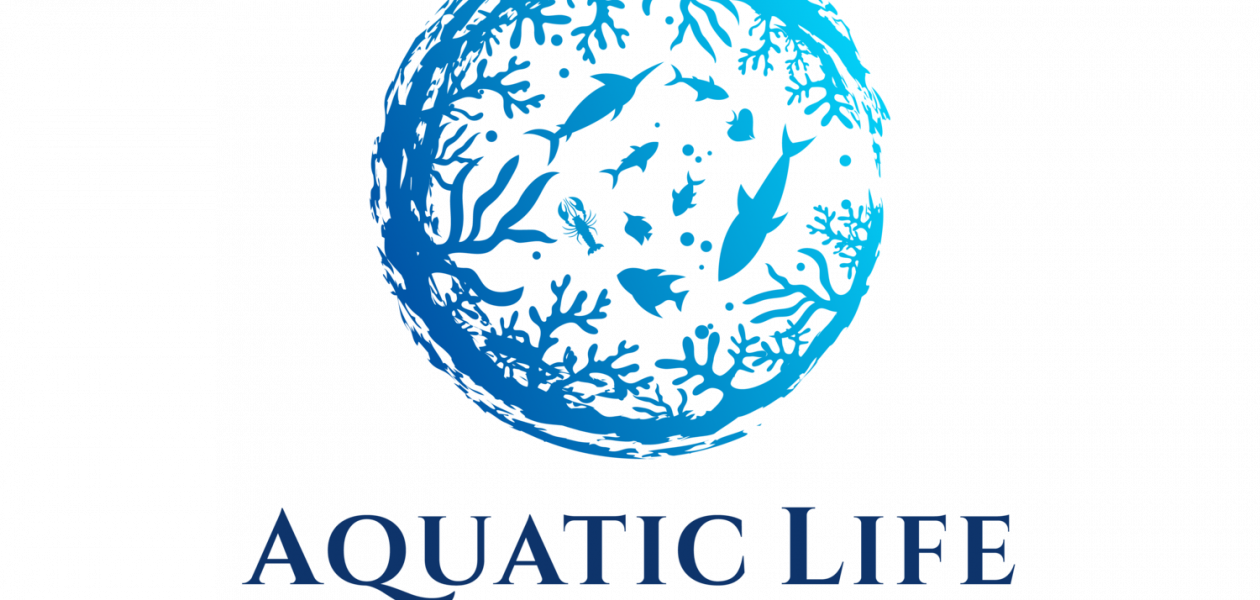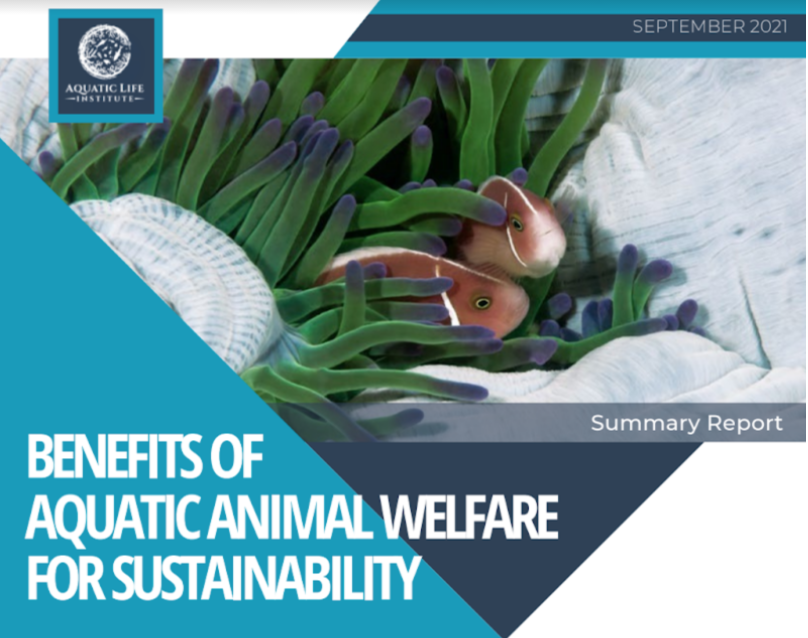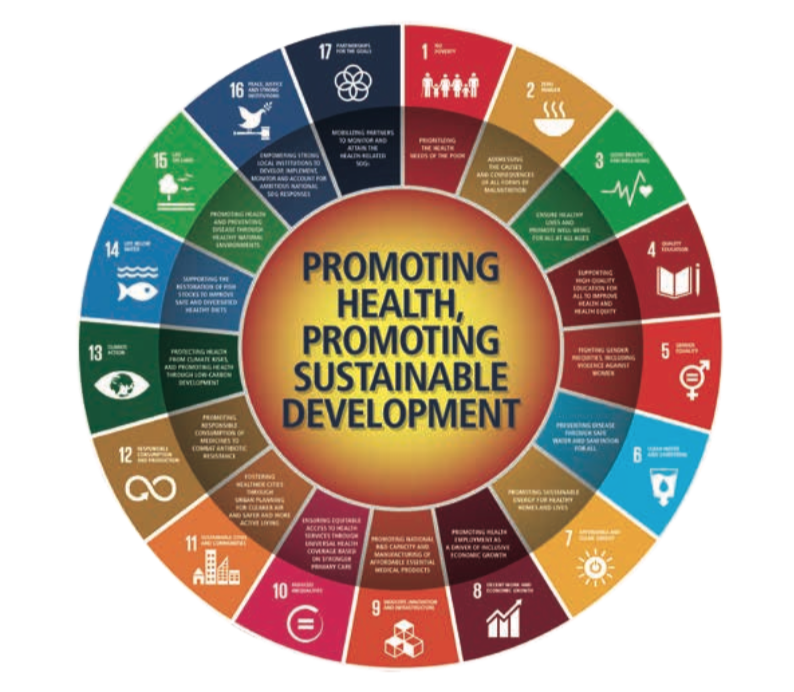
We are pleased to announce the publication of our latest report, Benefits of Aquatic Animal Welfare for Sustainability! This report highlights the intersectionality between improving aquatic animal welfare and sustainable development. Most importantly, it urges all policy makers and other relevant stakeholders to start taking aquatic animal welfare into account when developing sustainable development policies in the future.

We started work on the report earlier this year after attending several stakeholder consultation meetings organized by the Food and Agriculture Organization of the United Nations to help develop new guidelines for sustainable development of aquaculture. We immediately saw that while many UN member countries agree that fish welfare is important, they still see it as a tangential concern primarily related to threats to biosecurity and disease prevention; whereas we would say that it is essential for the sustainable development of aquaculture. Better well-being means an improved animal immune system, which fights disease, requires fewer antibiotics, creates fewer negative impacts on the ecosystem, and ultimately improves food safety and security.
So we set out to write a report and, based on desk research and discussions with global experts, we have identified ten priority areas where aquatic animal welfare considerations go hand in hand with global goals in environment and sustainability. This report also comes at a critical time: the first United Nations Food Systems Summit is taking place this month, where the whole world will talk about how to reorganize global food systems to make them sustainable and equitable. Therefore, it is a timely reminder that the welfare of aquatic animals must not be left behind in our efforts to achieve the SDGs.

Source: World Health Organization (WHO)
Additionally, this report is supported by various members of two of our alliances: the Aquatic Animal Alliance and the Aquatic Conservation Coalition. As a united front, we urge society and all policy makers to consider the welfare of aquatic animals and raise concern for their suffering to the same level as terrestrial animals such as cows, chickens and chickens. pigs.
As we have already written on our blog, fish are sentient beings capable of feeling and suffering. I sincerely hope that this report can, at a minimum, serve as a trigger for conversation about the importance of aquatic animal welfare in sustainable development policies. I hope you will have the opportunity to read the report and see that the welfare of aquatic animals is inextricably linked with ethical, environmental and social issues, and therefore should be an integral part of sustainable development policies in the future. .
You can find the summary report ( here ) and the full report ( here ).
Posted on 2021-09-16 10:49








Comments